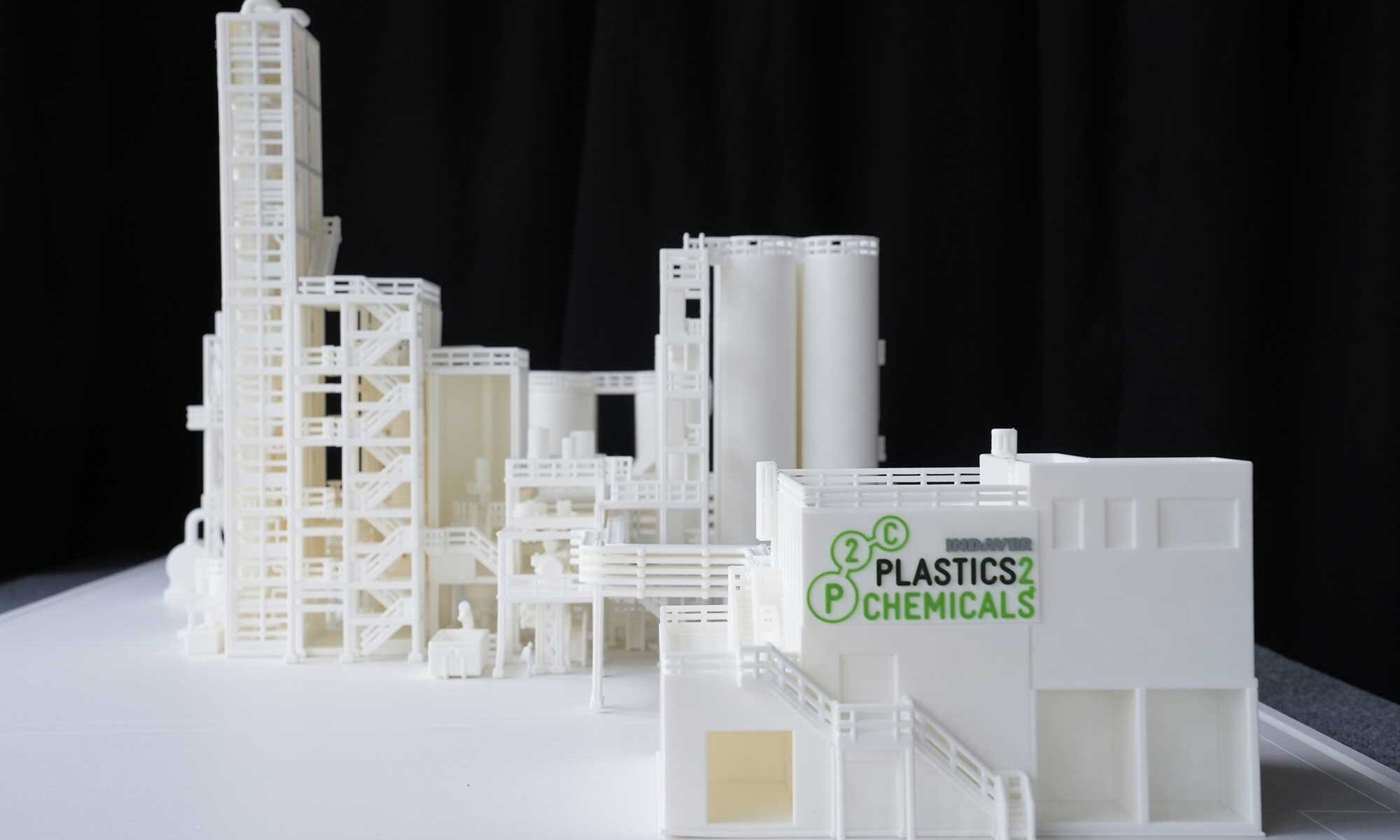At its new P2C facility, Indaver will process plastic streams that do not qualify for other forms of high-quality (mechanical) recycling. These are mainly polystyrene or polyolefins from household and industrial waste. Materials for the new plant will be sourced both from Belgium and abroad.
The recycling process consists of a thermochemical process in which longer carbon chains in the plastic are reduced or depolymerised. The materials thus released are basic raw materials with equivalent specifications to those extracted from fossil streams. The quality requirements are sufficient even for the food industry.
From pilot to global scale
Since 2017, Indaver has extensively tested the chemical recycling process in a pilot setup in cooperation with several Flemish universities. This proved that the process works with real waste streams. The quality of the recycled products has been validated several times by P2C’s customers, including the (petro)chemical industry.
The new plant will be on Indaver’s site in Antwerp (right bank) and will recycle up to 26,000 tonnes of plastic waste in the first few years, including both polystyrene and polyolefins in separate campaigns. In a second phase, starting from 2027, the plant will be converted into a dedicated polystyrene plant and expanded with an additional line to process up to 65,000 tonnes of plastics per year. With this industrial scale-up, Indaver is setting up the largest polystyrene depolymerisation recycling plant in Europe in Flanders. The plant will be capable of high-quality recycling half of Europe’s household waste packaging made of polystyrene.
CO2 reduction
Recycling polystyrene and polyolefins into chemical building blocks contributes to the transition to a circular economy and a significant reduction in CO2 emissions. In the initial phase, the plant will save around 90,000 tonnes of CO2 annually, while in the second phase it will save 227,500 tonnes of CO2 annually.
See Indaver’s website for more information.
Image: Scale model of the new plant/Indaver



